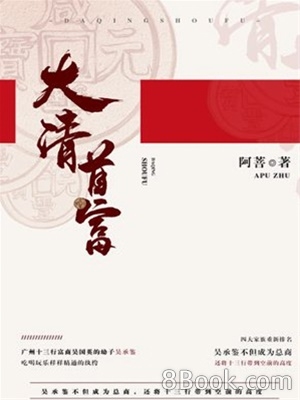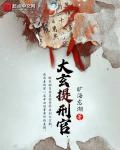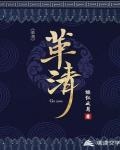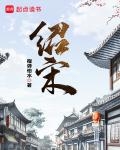Chapter 133: Burn the books and no one will live!
Not talking about the criticisms of Confucian scholars, but talking about the world, is to expand the scope.
The only reason you want me to respond is because I just mentioned banning Confucianism and you want me to continue to expand on this.
"Those who can criticize the imperial court are all descendants of the Hundred Families."
Li Si recited aloud, he had figured it out.
The First Emperor's thoughts are just as Ying Chengjiao said. Don't think too much and just do as the First Emperor tells you.
Because he thought too much, he couldn't see the deeper meaning behind the First Emperor's thoughts.
Just like today, Li Si initially thought it was a disaster for Confucianism, and later thought it was the First Emperor teaching his son. Now he realizes that the First Emperor was not only targeting Confucianism, but all the schools of thought.
"What the Left Prime Minister said is absurd. Now only Chunyu Yue and the Confucian scholars are here to make remonstrances. Why did they come from his family?"
The fire that was originally burning only in Confucianism was inexplicably directed to all schools of thought by the First Emperor and Li Si's words.
The ministers were no longer sitting as steadily as before, and one of them stood up straight in an instant to refute Li Si.
Ying Fusu wanted to speak up to defend Confucianism, but Ying Chengjiao put one arm around his neck and used his internal force with the other hand to seal his eight extraordinary meridians to prevent him from speaking.
"Come on, go on, go drink with uncle."
As he spoke, he hugged Ying Fusu, who had no ability to control himself, and returned to his original seat.
As soon as Ying Chengjiao's face changed, he stood up and walked towards Ying Fusu, so he was able to stop his nephew in time.
"Today, there are only Confucian scholars. What about the past? The Marquis of Zongheng said that Your Majesty was unfilial, and the lieutenant said that Your Majesty was not worthy of sharing wealth and honor."
The Marquis of Zongheng, Dun Ruo, had already left, but the State Commandant, Wei Liao, was still sitting firmly in the Xuanniao Palace.
Li Si fired at Wei Liao. If Wei Liao, the top military figure in the Qin Dynasty, had no temper at all, he would not be able to survive in a warlike country like the Qin Dynasty.
Under the sidelong glances of his ministers, Wei Liao, who had not even taken part in the dispute over the feudal system and the county system, did not stand up.
Sitting on the seat, he said with a gloomy face: "I have said this eight years ago. At that time, I did not know Your Majesty, so I was wrong. If the Left Prime Minister insists on bringing up the past, do you still remember that you were once a guest of the traitor Lu Buwei?"
Facing Wei Liao's counterattack, Li Si said calmly: "That's right. I didn't recognize Lu Buwei's character, and it's true that I became his disciple. The national commander didn't recognize your majesty's mind, and it's true that he said your majesty is narrow-minded."
Li Si has Your Majesty standing behind him, so he feels confident in saying this, but I cannot do that.
To get entangled with him would be equivalent to getting entangled with His Majesty, so it is not advisable to continue.
Wei Liao closed his eyes slightly, nodded and sighed softly: "It is true, but also wrong. It is the regret of my life."
Li Si's main purpose in provoking Wei Liao was to kill the chicken to scare the monkey. He did not want to argue with Qin ministers one by one on the matter of "hundreds of schools of thought criticizing the court".
Even Wei Liao, the national commander who is the best in military affairs, doesn't want to compete with you. Why do you still want to argue with Si, the prime minister who is the best in civil affairs?
The effect was also within Li Si's expectations.
As expected, all the ministers remained silent and no one interrupted him to talk about this issue.
"Some are Confucian scholars, some are Mohists, some are Confucianists, some are legalists, and so on. Just as many people can be called scholars of the Hundred Schools of Thought, they can also be called people who read books. Xianyang is like this, what about the rest of the world? Within three days of leaving Xianyang, there are scholars who use their knowledge to make arbitrary comments on right and wrong. They think they are speaking from their heart and are different from ordinary people, and they make random comments when they go out and come in."
"Qin law does not state that one can be punished for speaking out. Does the left prime minister want to set a precedent and prevent the people of the world from speaking out?"
A Qin official stood up and interrupted Li Si.
The man wearing a doctoral gown is Cui Guang, a doctor of Taoism.
Taoists believe in letting nature take its course, and kings rule by doing nothing.
Simply put, farmers grow good crops, butchers kill good pigs, and musicians play good pianos.
As long as everyone in the world does their job well, there will be peace and prosperity.
As long as the king does nothing, the world can be well governed. The person who implemented this policy was Shun, one of the Five Emperors.
Cui Guang believed that Li Si's statement of using the knowledge he had learned to arbitrarily judge right and wrong was wrong and did not conform to the Taoist philosophy.
Scholars read in order to gain knowledge. Not allowing them to discuss these issues is like not allowing farmers to farm, which goes against nature.
"Speech is not a crime, but instigation is. These scholars only expressed their dissatisfaction in Xianyang but did not dare to do anything. But when they arrived in the six kingdoms, they took the lead in making rumors and denying the Qin government. They also opened schools and taught their distorted ideas to students privately, causing the six kingdoms to still not submit to our Great Qin and bandits to rise up everywhere. Is this what Dr. Cui wants to see?"
Tang Bing, who was also a doctor of Taoism, pulled Cui Guang back to his seat when he was about to continue speaking.
Cui Guang frowned and asked, "What do you mean?"
Although Li Si's words were clearly a trap to shut Cui Guang up and prevent him from saying yes, Li Si's knowledge was not fake, so he had a way to answer.
Tang Bing whispered, "What Li Si said today is natural, just like water flows to lower places and fish swim in the water. Brother Cui blocked it with his body, blocked the water flow and threw the fish ashore , which is not in line with the Taoist principles."
Cui Guang thought for a moment, glanced at the First Emperor who had returned to the main seat, and sighed, "Brother Tang's words are very good, but I haven't figured it out yet."
Cui Guang said only one sentence and then sat down again. He talked with Tang Bing for a few words and never stood up again. All the ministers saw it.
The ministers would not think that Cui Guang was afraid of Li Si, or defeated Li Si - if Li Si could defeat a large family in one round, he would be so weak that he would quickly give up the title of Marquis Zongheng.
However, the ministers would think that there must be something they do not understand, and therefore would not dare to act rashly on this issue.
Wei Liao is the number one military figure in our Great Qin. Cui Guang and Tang Bing are both world-famous representatives of Taoism.
Even the three of them don’t want to continue arguing with Li Si, and want to wait, so am I qualified?
"Scholars teach scriptures and spread ideas to resist and criticize the Qin Dynasty's policies. It has become the norm. These scholars use the past to criticize the present and spread rumors to confuse the public. Such illegal things are even regarded as normal by some officials in the court. Is this acceptable? No!"
"The root cause of all this is that the six kingdoms have just been unified and there is a lot of work to be done. Academics are too free, thoughts are not unified, and social atmosphere is bad. If this continues and is not stopped, your majesty's prestige will decline, the rebellious forces will grow, and the stability of Qin will be destroyed."
Not all Qin officials were able to judge the situation, and many of them wanted to stand up and refute when Li Si was speaking.
Most of them were stopped by their friends as soon as they made any movement, and some only stood up half their body before being dragged back to their seats by their friends.
The more Li Si discussed, the more obvious the expectant expression on Emperor Qin Shi Huang's face became.
The ministers are not blind, they can all see it.
No matter how much they disagreed with Li Si's remarks, they had to let Li Si finish his words.
Because the First Emperor wanted to hear it.
With the tacit approval of the First Emperor, Li Si spent a whole cup of tea in the Xuanniao Hall talking about the crime of scholars criticizing the court and what serious consequences would it bring to the Qin Dynasty, and the disadvantages of open-mindedness in the Qin Dynasty.
"…Therefore, I, your servant Li Si, ask the historians to burn all the history books that are not about the Qin State. All the books of the Hundred Schools, such as the Book of Songs, the Book of History, the Mozi, and the Gongsunzi, should be sent to the county governors and burned. Only the books on medicine, divination, and agriculture should be kept for the world to pass on. Except for the government offices, no one in any place is allowed to open private lectures. Those who violate this rule will be killed."
After he finished speaking, Li Si half bowed.
The attitude is very sincere and pious.
His attitude toward the First Emperor was like that of a believer toward his god.
The First Emperor nodded and said with deep agreement: "What Li Si said is very much to my liking. If you have no objection, then do as Li Si said. Li Si, you and Wang Wan will go to the Prime Minister's Mansion together."
"I have objections."
Wang Wan and Li Si had originally had different political views, and now he heard Li Si's advice on doing things that would make Wang Wan hostile to all literate people in the world.
After Li Si finished speaking, he immediately said angrily: "Your Majesty has your own majesty's majesty, and the order of the court can be gradually established and improved. Why burn all the books? If there are no books in the world, how will the people of the Great Qin live? How can we cultivate ourselves? How can we help Your Majesty to stabilize the country?"
Li Si responded immediately.
"Without books, you can't live your life? You may as well go visit the people and see how many families have books. Without reading, you can't stabilize the country. My great Qin warriors are invincible, but how many of them can read and write? Self-cultivation depends on laws. It is the Qin laws that stipulate what the Qin people can and cannot do. What does it have to do with books? Besides, you may be too old to hear clearly. I am not talking about burning all the books in the world, but leaving books on medicine, divination, agriculture, etc. for the people to learn and develop. Is what I said wrong?"
With Wang Wan taking the lead, Li Si had already expressed his thoughts, and one after another Qin officials began to challenge Li Si.
From the day when the First Emperor did not pursue Wei Zhuang's fault in the Xianyang Palace, the officials knew that the First Emperor was not averse to discussion, but he was averse to discussion with selfish motives.
"According to what the Left Prime Minister said, doesn't that mean that everyone in the world is illiterate? What's the point of keeping books on medicine, divination, and agriculture? Who will announce the Qin laws? Who can say whether the Qin laws are true or false?"
Li Si smiled and said, "This is completely different from your idea. It is precisely because the world is illiterate that the rare books are all in the doctor's office. If the people want to learn medicine, divination, agricultural books, know the Qin laws, and understand what the Qin laws mean, they must ask the government. Doesn't this enhance the prestige of the government and enhance the majesty of your majesty?"
Another Qin official stood up and said, "Your Majesty, I think this is inappropriate. Our great Qin has so many people, how can officials teach them all? Moreover, books on medicine, divination, and agriculture all require careful study, and officials cannot learn all of them. Moreover, the books that have survived to this day are all of great benefit to the world. Burning them will cause dissatisfaction in the world and make the people lose their minds."
Li Si replied: "Although there are tens of millions of books in the world, only a few of them are of benefit to the world. If all the books in the world are burned, all the people of our great Qin will be taught in the court. What's wrong with that? If all the books in the world are preserved, then the words, deeds and thoughts of the people in the world will be preserved, regardless of good or bad, good or evil, positive or negative. How can the prestige of the court continue to exist? Isn't this a loss of the greater for the smaller?"
The officials in the court constantly attacked Li Si.
But Li Si had experienced the baptism of the feudal system and the county system, and this was not the first time he was so inexperienced in this situation.
What’s different this time from the last time is that Li Si’s remarks were correct according to the orthodox principles of the Qin State.
The reason why the people of the world hated the First Emperor and why there was unrest in the six kingdoms was because they knew too much.
For example, the State of Zhao remembered the burial alive in the Battle of Changping and the words "the people of Zhao will never surrender to Qin" in the Battle of Handan. How could it have a good impression of the State of Qin?
How to solve it?
Wouldn't it be better if they couldn't remember it?
Burn all the books so they don't remember them.
Not relying on words, not relying on books.
How long can you remember something just by memory?
And this is the fundamental reason why the Qin State became powerful.
This was Qin's policy of farming and warfare.
This is also an important idea in Shangjunshu.
Why were most of the people in the court of Qin State foreigners? Because Qin State did not allow teaching at all.
The Qin State’s way of playing is farming, fighting, farming, and fighting.
What is the point of teaching? What is the point of letting these people learn to read? If they can read and understand the truth, won’t they have their own ideas? Then they won’t listen to the court? Then they won’t be easy to control?
How to implement the policies of the court? It can't be all reckless people in charge, right? Even if the kings of Qin were all kings, a king would be no match for the smart people in the world even if he worked himself to death, right?
It's simple.
Recruiting talents.
If I don't cultivate talents, can't I just poach talents from other countries?
Come, come, our Qin State is eager for talents.
As long as you come to my Qin State, I will give you whatever you want, including houses, land, women and dignity.
What the six countries can give you, I, Qin, can give you. What the six countries cannot give you, I, Qin, can still give you!
Even though more and more talents gathered, they could only be used for one generation , because Qin State itself did not have the fertile soil for the birth of talents, and Qin State did not allow you to run teaching.
You can be as awesome as you want, and I can give you houses, land, and women, but remember one thing: don't play school with me. I don't need you to train talents for me.
This led to the fact that Han had five generations of Zhang family members serving as prime ministers of Han, but what about the prime ministers or chancellors of Qin? Not to mention being from the same family, there were no prime ministers or even from the same clan.
Shang Yang, Fan Ju, Zhang Yi, and Lu Buwei have nothing in common.
There was no fertile ground for the birth of talents, but the high salaries in Qin State had always been there and were never saturated, so talents from all over the world flocked to Qin State generation after generation.
And don't think that people of this era will be constrained by thoughts like national honor and disgrace.
Because what era was the Warring States Period? Before Lü Buwei conquered Zhou, the Spring and Autumn Period and the Warring States Period were essentially the Eastern Zhou Dynasty.
The whole world respects Zhou.
In fact, it can be said that all people in the world are Zhou people.
This is roughly the point of the argument. The feudal system was not originally intended to split the country.
To the literati at that time, working across borders was equivalent to working across provinces. There was nothing strange about it.
When Ying Zichu decided to destroy Zhou, he thought that Qin could swallow up the world.
The Qin State implemented such a policy: it developed its own military power, drew wisdom from other countries, and then destroyed all other countries.
Of course, there are also disadvantages.
The disadvantage is that there are not enough officials to control the territory.
If the Qin State had a systematic talent training program, it could have directly transferred talents and placed them in the captured cities, but it did not.
His ministers, generation after generation, were all poached.
The normal solution is to divide the territory and let everyone manage it together.
The abnormal solution is to burn the books and let no one live.






